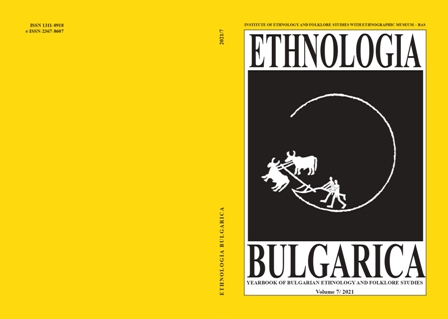The Social Dynamics in the Construction of the Other: Young Adults’ Perceptions of Youth Subcultures and Cultural Diversity
The Social Dynamics in the Construction of the Other: Young Adults’ Perceptions of Youth Subcultures and Cultural Diversity
Author(s): Ireri Armenta, Vihra BarovaSubject(s): Anthropology, Social Sciences, Customs / Folklore, Sociology, Cultural Anthropology / Ethnology
Published by: Институт за етнология и фолклористика с Етнографски музей при БАН
Keywords: stereotypes; discrimination; prejudice; critical incidents; subcultures; postsubcultures; identity; cosmopolitan skills
Summary/Abstract: This paper discusses the dynamics in constructing culture from the viewpoint of young adults. These dynamics can be identified both at a macro level, across cultures, and at a micro-level, within cultures. The essentialist view of culture as a monolithic entity with fixed values, beliefs and behaviours is a construct that seems to reproduce in the formation of the image of the Other. Subcultures are contrasted with the so-called norms of mainstreamculture, a view that denies the fluidity of culture as a dynamic social construct, which can lead to stereotyping and prejudice against persons (Holliday 2011). In the fields of sociology and cultural studies, Otherness is related to the construction of identities. It rests on social and cultural hierarchies and relations of power. ‘Strangers’ are socially produced (Bauman1998) and their Otherness reflects the established categories of race, gender and class. Thepresented study allows us to unravel the tensions arising from the Us-Them divide, which often leads to discrimination and prejudice. This qualitative investigation explores young adults perceptions of subcultures and cultural diversity with the use of interviews and critical incidents to approach the interviews. In the discussion of critical incidents or short stories (Arthur 2001), Bulgarian and Mexican students are seen to relate their own stories to those of the subcultural and foreign other, thus creating a reflective vision about the cultural difference. The discussions demonstrate the invention of successful strategies for avoiding stigmatization, stereotyping and discrimination. On the contrary, their discussions are conducive to acceptance of differences regarding the cultural formation and cultural display (Delanty 2009). The participants raise their voices against discourses that deny the cosmopolitan value of openness, respect, and equal rights of freedom of persons.
Journal: ETHNOLOGIA BULGARICA. Yearbook of Bulgarian Ethnology and Folklore
- Issue Year: VII/2021
- Issue No: 1
- Page Range: 77-94
- Page Count: 18
- Language: English
- Content File-PDF

